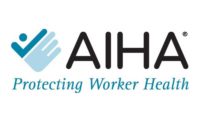As the CDC has recommended all Americans, regardless of coronavirus vaccination status, return to wearing face coverings in indoor public places to help thwart the spread of the highly contagious delta variant, the mask debate is in the spotlight once again. But some experts say the recommendations should specify the kind of masks people should be using.
As of July 27, 2021, the CDC has released the following updated guidance. The Agency updated information for fully vaccinated people given new evidence on the B.1.617.2 (Delta) variant currently circulating in the United States.
- Added a recommendation for fully vaccinated people to wear a mask in public indoor settings in areas of substantial or high transmission.
- Added information that fully vaccinated people might choose to wear a mask regardless of the level of transmission, particularly if they are immunocompromised or at increased risk for severe disease from COVID-19, or if they have someone in their household who is immunocompromised, at increased risk of severe disease or not fully vaccinated.
- Added a recommendation for fully vaccinated people who have a known exposure to someone with suspected or confirmed COVID-19 to be tested 3-5 days after exposure, and to wear a mask in public indoor settings for 14 days or until they receive a negative test result.
- CDC recommends universal indoor masking for all teachers, staff, students, and visitors to schools, regardless of vaccination status.
"Delta is so contagious that when we talk about masks, I don't think we should just talk about masks," Scott Gottlieb, former commissioner of the Food and Drug Administration, said during a recent appearance on CBS's "Face the Nation." "I think we should be talking about high-quality masks," such as N95 respirators.
In an interview with The Washington Post, Monica Gandhi, a professor of medicine and an infectious-disease expert at the University of California at San Francisco, expressed a similar sentiment: "We can't say we're going back to masks without discussing type of mask."
Vaccinations, experts emphasized, remain the first line of defense against the coronavirus. "Far and away the best prevention we have are still the vaccines," Paul Sax, clinical director of the Division of Infectious Diseases at Brigham and Women's Hospital in Boston, told Yahoo News. "All of these things pale in comparison to getting the remaining people who are eligible for vaccination vaccinated."
But amid concerns about the rapid spread of the delta variant, "it's a fantastic idea at this point in time to move toward higher-quality masks," especially if you're unvaccinated or otherwise vulnerable to severe disease, said Chris Cappa, an environmental engineer and professor at the University of California at Davis. And for fully vaccinated individuals who may still be at risk of breakthrough infections, he noted, "the Delta variant is a good reminder that we shouldn't necessarily quit wearing masks when we're in environments that might be prone to transmission."
In a Yahoo News article, Cappa and other experts offered the following advice to consider about the use of N95 masks.
Not all masks are created equal. The efficacy of a mask is based on its material and fit. Medical-grade respirators, such as N95 masks, can provide greater protection from infectious coronavirus particles than surgical masks or cloth masks, said Linsey Marr, an aerosol expert at Virginia Tech who studies airborne virus transmission.
And because the delta variant is much more easily transmissible than previously circulating strains of the coronavirus, "we really need highly protective masks along with everything else," Marr said. "Where a simple cloth mask was helpful before, it's not helpful enough now," particularly for people who remain unvaccinated.
The woven material of many cloth masks isn't as effective at filtering particles as the nonwoven, meltblown polypropylene used to make surgical masks and respirators, Marr said. And properly worn N95s have a leg up on standard surgical masks because they are designed to fit snugly to the face - which allows them to filter at least 95 percent of airborne particulates.
But, Marr noted, it's important to be wary of counterfeit respirators. The Centers for Disease Control and Prevention has an online guide with lists of N95 masks approved by the National Institute for Occupational Safety and Health, and tips for spotting counterfeit ones.
KN95 masks, which are manufactured in China and can be equivalent to N95s in effectiveness, have not gone through the NIOSH approval process. But the Food and Drug Administration had authorized some KN95s for emergency use by health-care workers when there was a shortage of N95 masks during the pandemic. While you can refer to that list to find effective and not counterfeit KN95 masks, Cappa said he would still recommend a NIOSH-approved N95. "I can have higher confidence that it is high quality," he said, and "the ability and ease to get N95s has gone way up."
Fit and mask care matter. It's also critical to wear N95s properly, experts said: There should be no gaps between the edges of the mask and your face.
Unlike cloth masks, N95s can't be washed, so pay attention to the state of your mask. Gandhi said she typically swaps out an N95 every three days as long as it doesn't become soiled. Between uses experts suggested letting masks air out, preferably in the sun. If there's any visible signs of wear and tear, it's time to get a fresh one.
When handling your mask, try to avoid touching the front and make sure to wash or sanitize your hands after, Marr said.
Some people are more at risk. Switching to an N95 mask may especially be a good idea for more vulnerable people, experts said. This includes the unvaccinated as well as those who are vaccinated but may still be at increased risk, Sax said, such as the elderly and the immunocompromised or people with multiple medical problems. "If they need to be in settings where they're mixing with unvaccinated people or they don't know the vaccination status, then upgrading their mask is very reasonable."
It may be less important for fully vaccinated healthy people to have a high-performance mask, experts said. Combining "really almost any mask-wearing" and vaccination still "provide generally quite good protection," Cappa said.
He recommended that vaccinated, low-risk individuals make decisions about upgrading their masks based on situational factors. Keep in mind, he said, that the longer you're in an enclosed space in proximity to other people, the more your odds of catching something go up. Community rates of transmission and hospitalizations should also be considered.




